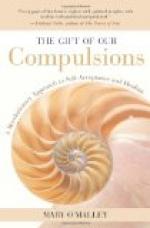READING.
In my experience, both as teacher and scholar, I have observed among the young those who read a great many books, but at the end appear but little wiser. They may have a confused and indistinct recollection of events and characters, and may be able perhaps to follow out the plan of a story. Out of the mass that they have read they may have retained a great many facts; but being without connection or object, they are nearly useless. Bad habits are formed, their reading is to no purpose, and their time, therefore, misspent.
I fear there are too few among those whose years should enable them to understand and appreciate the objects for which we live, that do appreciate them. There are too many who suppose that reading is only a very pleasant amusement. They think of printing as a very ingenious invention, and have no thought higher. They may look about and see a great deal of misery and unhappiness; but its alleviation is nothing to them. “The great mission of life” is something that is very well to be talked of in the pulpit, and ministers and reformers will accomplish it, no doubt. But life has no responsibilities for them.
One of our first duties is to seek our own moral and intellectual culture. Let both these portions of our nature be cultivated together. Do not separate them, for by so doing both are threatened with danger. Heart without mind is generally weak, but mind without heart is always dangerous. Do not suppose because you have left the schoolroom and no longer have lessons set, and are no longer reprimanded if they are not committed, that your education is finished. Rather regard the school as the place where you shall learn to study, life as your term-time, and consider your education finished when there is nothing more for you to learn. It is not necessary that study should be confined to books. Accustom yourself to study actions and their influences and effects. Public lectures, conversations, in short, every event of your life, will present questions, and your own mind, with a little reflection, will present the answers. If it does not, do not let the fear of ridicule prevent your asking.
But it is through books, chiefly, that we are to look for improvement. Every person should appropriate some part of each day to reading. Young persons should early be taught the advantages of a method for appropriating their time. Let each duty have its time. In this way much time is saved. Let the time you appropriate to reading be one that will be the least liable to interruption. Defer it not, if it can be avoided, till late in the evening, when you are wearied with the fatigues of the day.




